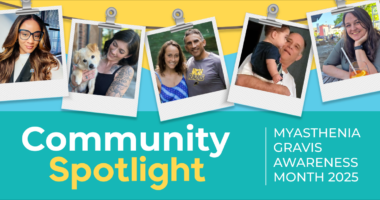With Chronic Illness, the Silence of Others Is Deafening

One of the hardest things about living with a chronic illness like myasthenia gravis (MG) is the dialogue that doesn’t happen with people we know. The eye rolls we perceive when we try to update loved ones about our health status — whether they’re real or not. Or the phone calls that stop coming to invite us to events. The silence is deafening.
In the beginning
I’ve been dealing with this disease for more than a decade. In the beginning, when the symptoms were causing issues and we had no idea what was wrong, family and friends welcomed the updates about my health, such as the random leg weakness that was causing me to fall, requiring the use of a wheelchair, the trouble I had eating and swallowing, and my droopy right eye. Calls and texts were frequent and asked for the latest updates. It was something new and concerning, and no one knew at the time that this would become my everyday life.
Invitations abound
During that time, friends and family continued to invite us to events, such as weddings, birthday parties, baby showers, barbecues, and other family gatherings. We made it to some of them, but as my health continued to worsen, we had to decline the invitations.
When I was diagnosed with myasthenia gravis in 2018, another surge of concern happened, followed by more invitations. We finally had a name for the beast, which meant we could treat it and I’d be cured, right?!
Wrong. As my care team grew, so did the number of meds I had to take, including those that suppressed my immune system. The same meds that helped control the MG made me more susceptible to getting sick.
Getting sick-y with it
Any kind of illness, down to the common cold, can have a dramatic effect on us myasthenics. Our immune system is already malfunctioning, so throw in a foreign invader and things can get wonky. MG symptoms can flare. It might cause eye droop or perhaps generalized weakness.
These are fine. But when the bulbar symptoms or the weakened breathing come out to play, things can get dicey. We had to start qualifying our responses:
“Thanks for the invite! Has anyone been sick lately? Yes? We’re not going to be able to make it then, sorry!”
“An outdoor barbecue? Sounds like fun! In the middle of August? Let me check the weather. It’s supposed to be 90 degrees that week, so we may not make it because the heat can make Shawna worse. Can you put us down as a maybe?”
“Thanks for thinking of us! Put us down as a maybe and we’ll be there if Shawna is feeling well enough.”
Silence
Pretty soon, the calls stopped coming to invite us to events, and the messages asking how things were going all but vanished. My husband and I understood. We were the flaky friends who could never provide a concrete yes or no about our attendance.
When trying to provide an update on my health, we started receiving curt replies in dismissive tones. People changed the subject as quickly as they could. Often, the communication just stopped.
Doubt and fatigue
When this happened, I started doubting myself. Was I not conveying what I was going through well enough for people to understand? Did people really want to know how I was doing, or were they just being nice? Are folks just tired of hearing about it? Are our loved ones experiencing compassion fatigue? Do they just have too much on their plates?
Regardless of the reasons, facing this is hard. On the flip side, it’s also hard to accept help when you’ve given up and stopped asking for it. More on this in a future column.
Living with myasthenia gravis is hard. It’s unpredictable. It’s scary at times. And it can get downright lonely. But I keep pushing on because tomorrow is a new day, and this gentle roar needs to be heard.
Myasthenia Gravis News is strictly a news and information website about the disease. It does not provide medical advice, diagnosis or treatment. This content is not intended to be a substitute for professional medical advice, diagnosis, or treatment. Always seek the advice of your physician or other qualified health provider with any questions you may have regarding a medical condition. Never disregard professional medical advice or delay in seeking it because of something you have read on this website.








Leave a comment
Fill in the required fields to post. Your email address will not be published.